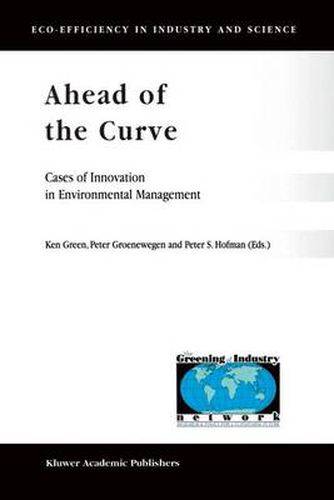Readings Newsletter
Become a Readings Member to make your shopping experience even easier.
Sign in or sign up for free!
You’re not far away from qualifying for FREE standard shipping within Australia
You’ve qualified for FREE standard shipping within Australia
The cart is loading…






This title is printed to order. This book may have been self-published. If so, we cannot guarantee the quality of the content. In the main most books will have gone through the editing process however some may not. We therefore suggest that you be aware of this before ordering this book. If in doubt check either the author or publisher’s details as we are unable to accept any returns unless they are faulty. Please contact us if you have any questions.
The debate on sustainable production often ends in discussions on the feasibility of far-reaching changes in relation to the competitiveness of companies. Industry itself and policy-makers tend to back away from engaging in profound processes of industrial transformation. Examples of companies who have voluntarily moved beyond what is seen as ‘reasonable’ and ‘feasible’ can overcome this deadlock. This book collects a fine sample of companies who have taken up their responsibility in this respect. To quote the editors of this book: They are cases that might provide other firms and policy-makers with ideas for innovative environmental responses that are outside the slowly rising trend of improvement that we are currently observing: in short, the cases are of firms and ideas that are ahead of the curve . The editors and many of the authors of this volume are members of the Greening of Industry Network and have been debating with one another for years. Founded in 1991, the Greening of Industry Network comprises over 1500 individuals representing academia, business, public interest, labor and government from more than 50 countries. Participants work together to build policies and strategies toward creating a sustainable future through many vehicles – coordinating research efforts, publications, planning and participating in workshops, public forums and conferences. To provide benefit to broader society, the Network stimulates public dialogue and brings together academic researchers from many disciplines with other stakeholders who traditionally do not work together in coalitions.
$9.00 standard shipping within Australia
FREE standard shipping within Australia for orders over $100.00
Express & International shipping calculated at checkout
This title is printed to order. This book may have been self-published. If so, we cannot guarantee the quality of the content. In the main most books will have gone through the editing process however some may not. We therefore suggest that you be aware of this before ordering this book. If in doubt check either the author or publisher’s details as we are unable to accept any returns unless they are faulty. Please contact us if you have any questions.
The debate on sustainable production often ends in discussions on the feasibility of far-reaching changes in relation to the competitiveness of companies. Industry itself and policy-makers tend to back away from engaging in profound processes of industrial transformation. Examples of companies who have voluntarily moved beyond what is seen as ‘reasonable’ and ‘feasible’ can overcome this deadlock. This book collects a fine sample of companies who have taken up their responsibility in this respect. To quote the editors of this book: They are cases that might provide other firms and policy-makers with ideas for innovative environmental responses that are outside the slowly rising trend of improvement that we are currently observing: in short, the cases are of firms and ideas that are ahead of the curve . The editors and many of the authors of this volume are members of the Greening of Industry Network and have been debating with one another for years. Founded in 1991, the Greening of Industry Network comprises over 1500 individuals representing academia, business, public interest, labor and government from more than 50 countries. Participants work together to build policies and strategies toward creating a sustainable future through many vehicles – coordinating research efforts, publications, planning and participating in workshops, public forums and conferences. To provide benefit to broader society, the Network stimulates public dialogue and brings together academic researchers from many disciplines with other stakeholders who traditionally do not work together in coalitions.